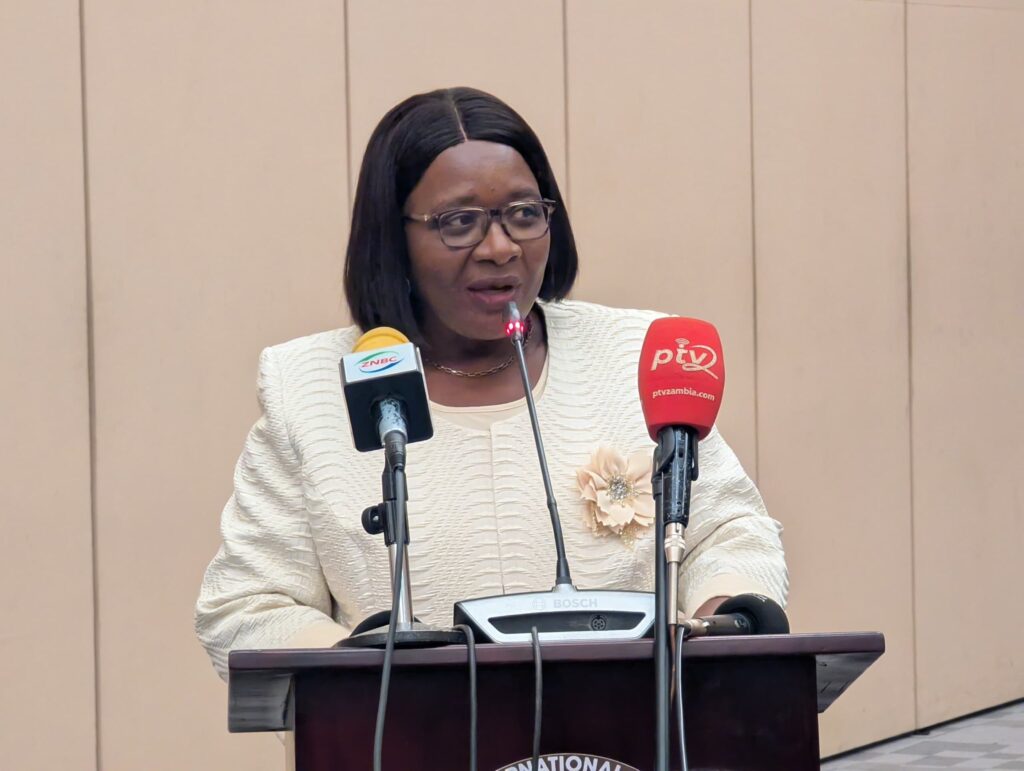Gov’t Prioritises Skills Development to Drive Economic Transformation
Minister of Labour and Social Security, Brenda Mwika Tambatamba, MP, has reaffirmed the government’s commitment to skills development as a cornerstone for economic transformation. She announced that targeted training and apprenticeship programmes will be implemented across key economic sectors to bridge Zambia’s skills gap and boost productivity.
Speaking when she opened the Tripartite Consultative Labour Council (CLC) meeting, which brought together representatives from government, employers, and the labour movement, Ms Tambatamba said a 12-month pilot apprenticeship programme will commence in January 2026. The initiative forms part of the government’s broader strategy under the Eighth National Development Plan (8NDP) to equip Zambians with industry-ready skills for meaningful participation in the country’s transformation agenda.
“This pilot programme will bridge existing skills gaps, demonstrate the viability of apprenticeships as a means of developing industry-ready skills, promote employability, and enhance productivity,” she said. “It will also provide lessons for scaling up the programme and attracting sustainable financing from both government and the private sector.”
The Minister disclosed that the New Dawn Administration, through the Skills Advisory Committee, and with support from the International Labour Organization (ILO) and the European Union (EU), has identified critical skills in the agriculture, mining, tourism, and energy sectors needed to drive growth and foster employment creation.
“The Critical Skills List is a vital tool to address skills gaps and mismatches, while promoting competence-based training and enhancing employability,” Ms Tambatamba explained.
She further revealed that the government is proposing the designation of air traffic controllers, aviation security personnel, and Electoral Commission of Zambia staff as essential workers to safeguard peace, democracy, and economic stability. “Given the critical nature of these services, I urge members of the Council to consider this proposal objectively, ensuring both workers’ rights and national interests are protected,” she said.
On the issue of union proliferation, Ms Tambatamba announced that a draft Statutory Instrument on the Proliferation of Trade Unions has been developed after extensive consultations and will be presented for further deliberation. She reiterated the government’s commitment to social dialogue, recalling President Hakainde Hichilema’s commendation of the labour movement and employers for maintaining industrial peace — a foundation she described as “the bedrock of national growth.”
ILO Country Director for Zambia, Malawi and Mozambique, Wellington Chibebe, urged stakeholders to invest in skills development and workplace innovation to prepare the workforce for the rapidly evolving world of work. “The future of Zambia’s economy depends on how well employers and government align their efforts towards equipping citizens with relevant and modern skills,” he said.
Zambia Federation of Employers (ZFE) President, Myra Ngoma, echoed the call for industry-driven training systems, emphasising the need for skills aligned with economic realities. “We are challenged to create more jobs, improve productivity, and ensure that our workforce remains skilled and competent for a modern, diversified economy,” she noted.
Representing workers, Zambia Congress of Trade Unions (ZCTU) President, Blake Mulala, reaffirmed the commitment of the labour movement to support economic growth while calling for fairness, respect, and adherence to labour rights.
He also raised concerns over reports of verbal abuse and intimidation in the private sector, particularly within the hospitality industry, urging the Ministry to investigate and protect workers’ dignity.



